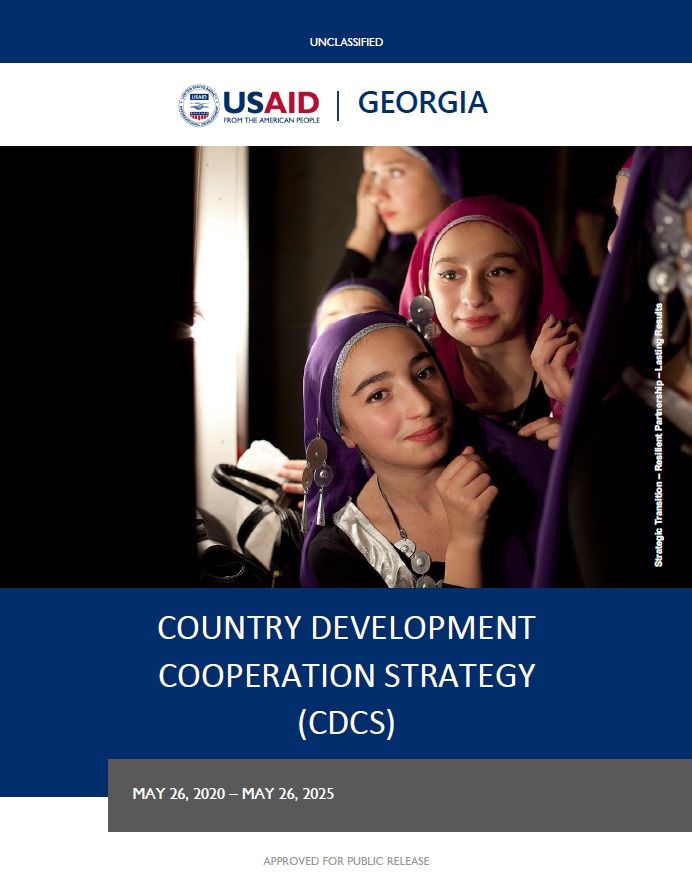Speeches Shim
Georgia is the United States’ key and reliable partner in a geostrategic region of vital importance. As the U.S. government continues its steadfast support of Georgia’s integration into western political and economic structures, USAID has developed a new, five-year Country Development Cooperation Strategy (CDCS) to partner with Georgia on its challenging Journey to Self-Reliance (J2SR) while advancing Euro-Atlantic integration and strengthening resilience to malign influence.
As a frontline state, Georgia finds itself at a critical juncture, with its gains and aspirations put to the test. Georgia’s Abkhazia and South Ossetia regions are occupied by Russian forces. Russia’s "borderization" efforts (i.e. the installation of fencing on Georgian territory near the administrative boundary line of South Ossetia) indiscriminately and disproportionately affect civilians living in the area, as the country continues to face a precarious geopolitical situation, sitting at the crossroads of Asia and Europe and between Russia and Iran. Despite these challenging circumstances, Georgia has remained determined to complete its transition to a free-market democracy. The progress Georgia has made on this path over the last decade has not been easy, and in many cases, it has come through U.S. and European Union engagement and foreign assistance. In many spheres, Georgia has turned out to be a leader in advancing reforms to strengthen its economy and its governing institutions. Going forward, Georgia can build on this progress to shift toward taking a greater role over its development course to achieve its strategic goals.
USAID’s development assistance over the next five years is designed to strategically capitalize on Georgia’s successful reforms and development gains while addressing challenges related to potential democratic backsliding and a geopolitical environment that threatens to undermine the country’s development gains and territorial integrity. The CDCS reflects the priorities of the U.S. National Security Strategy, and it is aligned with the Georgian government’s reform agenda and Euro-Atlantic aspirations. The strategy focuses on three development objectives: (a) resilience to external malign influence strengthened, (b) fragile democratic gains consolidated through enhanced citizen responsive governance, and (c) inclusive high-value employment opportunities provided through increased economic growth.
To implement the CDCS, USAID will work with a broad range of partners and stakeholders, drawing on multiple partnership opportunities that the Agency’s policies present (e.g. the Private Sector Engagement Strategy, expanded government-to-government mechanisms, and the New Partnerships Initiative, to name a few). This means integrating more local partners into procurement, supporting country-led solutions and co-creating development interventions, scaling up institutional capacity development of strategic partners, promoting innovation, and increasing engagement of youth and women.
By the end of the strategy, USAID will have laid the foundation for a legacy that advances Georgia’s path to Euro-Atlantic integration; supports Georgia in protecting itself from one of its greatest threats - external malign influence; and helps Georgian citizens benefit from improved governance, rule of law, and high-value employment opportunities.



Comment
Make a general inquiry or suggest an improvement.